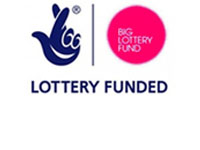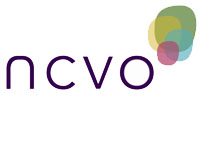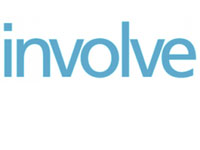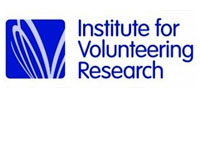Although the Pathways project officially ended with the launch of our final learning event and associated paper back in October, I’ve continued to be involved in spreading the word about the project and sharing the findings, mostly through speaking at events and doing workshops, a few of which I’ll talk about here.
Back in December, I was invited to speak about active citizenship at the National Institute of Adult Continuing Education (NIACE) annual conference. Princess Anne is a patron of the charity; she attended and shared her early experiences of volunteering through knitting squares for blankets for people in need in the Brownies. The Pathways research found that uniformed organisations like Brownies and Boys Brigade or Scouts were common entry points for participation, and I was pleased to be able to make this link in the presence of HRH!
In January I did a workshop at the National Union of Students (NUS) annual strategic conversation – a time when the NUS gets together to explore how students’ unions can demonstrate their impact on students, institutions and the wider community. The NUS is interested in widening the participation of students in unions, and my workshop focused on the Pathways findings that tease out the motivations and barriers to participation.
We’re currently working on an academic article – more news on that in the summer – and the findings of the Pathways research continue to inform my other research work and interests, for example some current work looking at the impact of volunteers in children’s centres which I hope to present on later this years at the VSSN/NCVO Research Conference in September. I’m also looking forwards to linking up with international colleagues and to presenting on a panel with the Chair of the Pathways Advisory Group, Marilyn Taylor, at the International Society for Third-Sector Research (ISTR) conference in Siena in the summer.
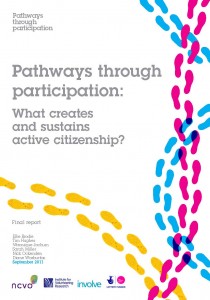
 Subscribe to our project updates
Subscribe to our project updates